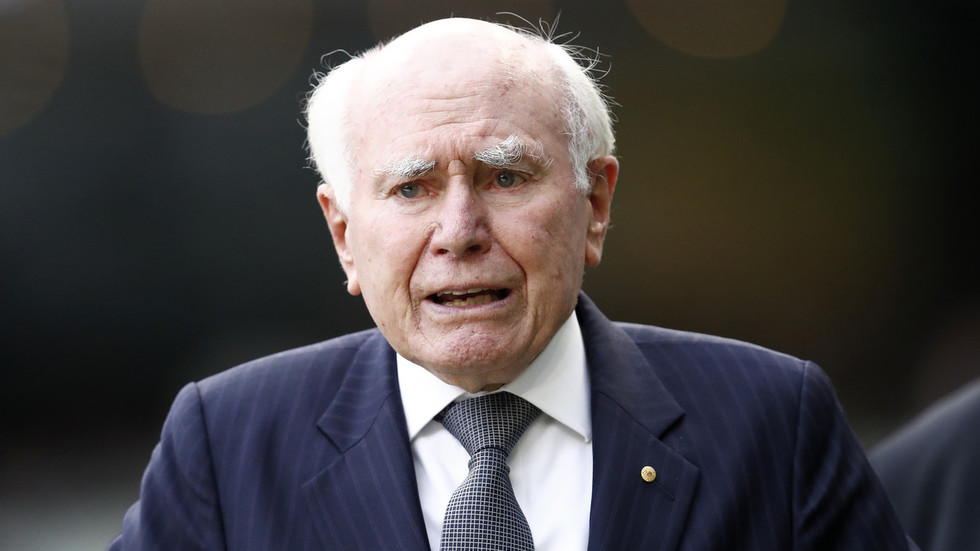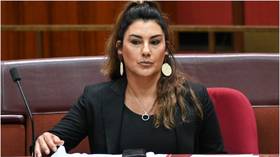
London’s rule over the nation was “infinitely more successful” than similar attempts by other European countries, John Howard has said

Former Prime Minister of Australia John Howard attends the state memorial service for former Australian cricketer Shane Warne at the Melbourne Cricket Ground on March 30, 2022 © Getty Images / Darrian Traynor/Getty Images
John Howard, who served as Australia’s prime minister from 1996 to 2007, has stirred controversy ahead of a referendum which could give the country’s indigenous population a more powerful political voice, by saying British colonization was “the luckiest thing that happened” to the country.
“I do hold the view that the luckiest thing that happened to this country was being colonized by the British,” Howard, 84, said in an interview published by The Australian newspaper on Tuesday. He added that British rule over Australia was “not perfect” but that they “were infinitely more successful and beneficent colonizers than other European countries.”
Howard’s comments come ahead of the ‘Indigenous Voice to Parliament’ referendum, to be a held between October and December. If passed, the measure – which has become colloquially known as ‘the Voice’ – would amend Australia’s constitution to give indigenous people a greater say on laws and policies that affect them.
Howard, who said he intends to vote ‘no’, also predicted that the referendum would fail to pass, and warned that it could establish a “new cockpit of conflict,” as it relates to policies involving the Aboriginal population.

Read more
Supporters of the proposed constitutional amendment say it would enshrine more robust measures, rights and protections for indigenous people into Australian law. Presently, Australia’s Aboriginal communities have a lower life expectancy compared to others, with disproportionately lower health and education outcomes.
Opponents, meanwhile, say the Voice would only enact symbolic policy changes while failing to impose any meaningful reform, and that it would contradict some existing Australian governmental structures. Polling has indicated a drop in support for the ‘yes’ campaign.
Howard’s comments, though, have inflamed recent criticism surrounding the referendum’s opponents. One central figure in the ‘no’ movement, Labor minister Gary Johns, faced calls to resign in recent days after he called for Indigenous Australians to receive blood tests to determine if they qualify for welfare payments.
The opposition movement was also accused of using a ‘racist trope’ by featuring a cartoon of a prominent ‘yes’ campaigner dancing for money in a full-page newspaper advertisement. The referendum, Australia’s first since 1999, would lead to the first change to the country’s constitution in more than 46 years if it passes later this year.
British settlers established Australia as a penal colony governed by the Royal Navy in 1788 and ruled the territory until 1901 when the British parliament passed legislation entitling the Australian colonies to collectively govern themselves. King Charles III remains the Australian head of state.




